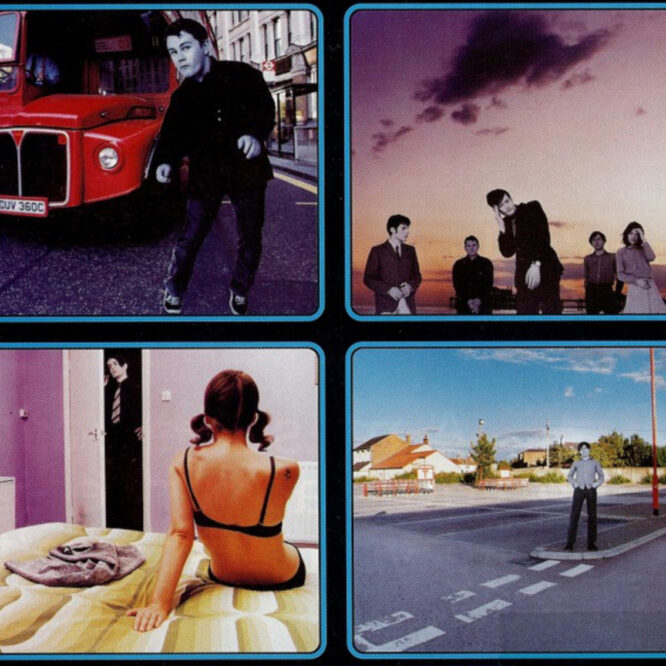
In the late 90s, I think all of us skinny indie boys were a bit in love with Lauren Laverne.
Now the respectable presenter of BBC Radio 4 Desert Island Discs, she was once the snarkiest, brattiest and just plain funniest person in English indie music. She could pack more wit into a sentence than all of the 30 something music critics put together.
This is perhaps her biggest hit (although it’s technically a guest feature on a record by Mint Royale) and it’s called Don’t Falter:
It’s a family favourite of ours. It’s in our big YouTube music video playlist for the kids. We even played it on our wedding day.
I was watching the video this morning, and I suddenly got a pan of nostalgia for my student days – not something I get that often. I was never a very good student, but I fell in love with Liverpool, the town where I went to university.
This video always reminds me of the Costcutter at the end of our street, and the energy of a northern city in the late 90s. But more generally it reminds me a certain kind of cultural aesthetic that I really miss.
I first noticed it with Blur, even though Damon Albarn openly admitted it was a sneering and patronising take on working class life (“I’m a battery thinker / Count my thoughts on 1-2-3-4-5 fingers”).
Then came Oasis. And if you weren’t there it is simply impossible for me to overstate how big Oasis were in English culture in the late 1990s. If you didn’t make a show of being a super fan, you might as well go and live in the woods. I respect much of what Oasis did, particularly how masterfully they manipulated the middle-class media pseudo-lads who worshipped them so much. But stylistically, I always found them to be quite a narrow mod rebranding of the Stone Roses – which was fine, but there was a lot more innovative stuff going on.
It was really the band Pulp that cemented this aesthetic I’m writing about here.
They took the bright colours and cheerful branding of budget supermarkets and other forms of supposedly cheap design, and they celebrated them. And instead of using their class background to make themselves the new Beatles, which is what Oasis did, they actually wrote about what life was like outside the London bubble.
I feel like it’s kind of unimaginable that Common People would be a hit now. Not because the public wouldn’t like it, but because no mainstream outlet would give it the time of day. Imagine the knuckle-wrapping that any favourable critic would get from the angry billionaire boss or their proxies.
Now, I was always this posh tourist in the north of England when all of this was blowing up. I never had any illusions about being ‘one of the common people’, and it’s not something I aspired to.
But I really miss living in a culture where, y’know, they even exist.

Leave a Reply